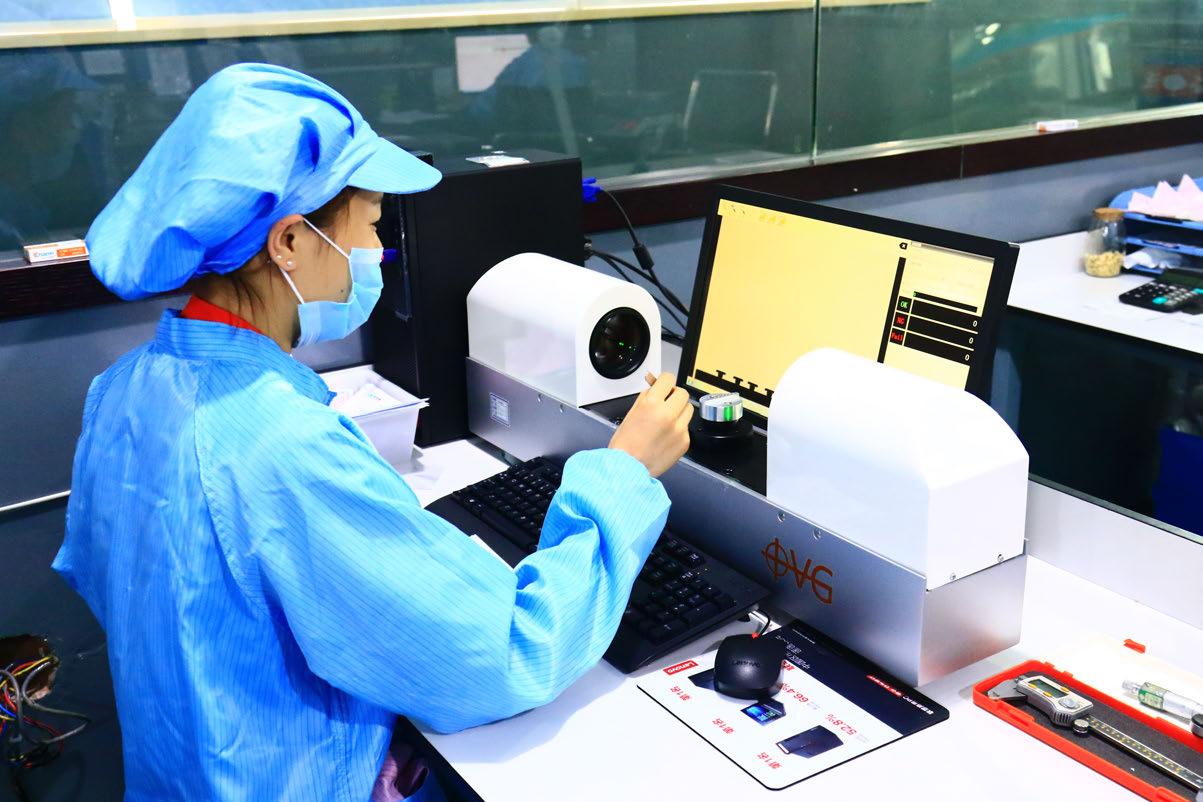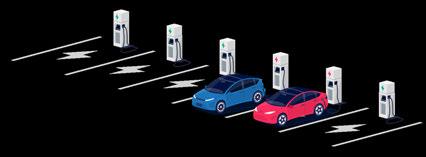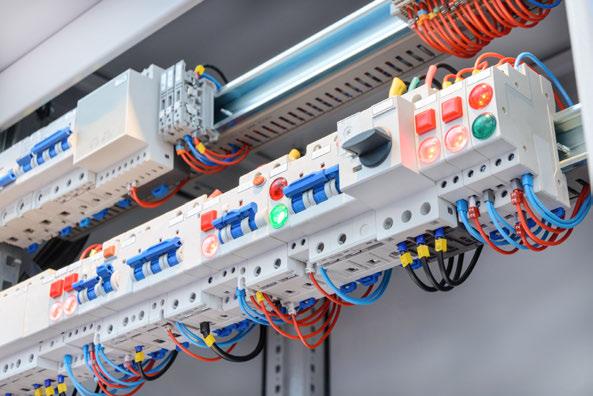
Material Application Guide ELECTRICAL 2023/2024

Since 1996, Juxing has been the preferred partner to electrical installation equipment manufacturers in the supply of silver electrical contact and copper components. With our national recognized R&D team, we had helped our clients to better their products in pricing competitiveness and quality by utilizing the fruits of our R&D efforts to deliver contacts that are produced using the latest technology.
Contact Rivet
Composite Strip
Powder Metallurgy


Copper Assembly

1 Introduction
R&D and Manufacture
Relay
Electrical contacts are used in a wide variety of electrical relays that cater speci cally to different industrial and consumer products.

Household Relay
Household Appliances

Industrial Relay
Industrial Automation

Automobile Relay
Automobile

Power Relay
Smart Meter

HVDC Relay
EV Charging Station

2
Material Applications
Applications
Switches
Electrical switches are primarily used in buidlings as well as electrical tools in the form of contact rivet available in solid, bi-metal and tri-metal variation.

Wall Switch & Extension Socket
Building and Construction Electrical Drill & Tool





Breakers & Contactors


Circuit breakers and contactors utilize electrical contacts in the form of contact tips in different silver alloy composition.

3
Material Applications
Electrical Contactor Circuit Breaker Industrial Automation Electrical Distribution System Applications
Contact Materials

With over 50 different electrical contact material, the application of speci c material would be dependent on the electrical requirements and it’s nal product application.
Technical support encompass with over 20 years of experience are available to assist our clients on the material suitable to achieve enhanced product performance, cost reduction and trouble-shooting. Detail computerized analysis are also available on request.

4
Material Characteristics
Contact Materials
Silver Tin Oxide
Environmental friendly low voltage contact material with excellent welding resistance and arc erosion.

For: Relays, Contactors and
AgSnO2
Silver Tin Oxide
Indium Oxide
High hardness with good thermal stability and provides good resistance to fusion welding and arc erosion.


AgSnO2In2O3
For: Automotive Relays, General Purpose Relay, HVDC relays and Contactors.
Silver Nickel
Good anti-welding performance and arc erosion resistance under small to mid current ow. Excellent processing performance with stable contact resistance.

For: Relays, Switches, small to mid sized AC Contactors.
AgNi
Material Characteristics
5
Contact Materials
Silver Cadmium Oxide
Low contact resistance, high resistance to fusion welding and arc erosion.

Fine-Grain Silver
Good conductivity and low contact resistance. Improve material hardness, strength, welding resistance and arc erosion.


AgCdO
Silver Zinc Oxide
Environmental friendly material with short arcing time, strong impact resistance and good breaking performance. Possesses ideal arc erosion resistance under high breaking current.
Material Characteristics
6
For: Relays, Contactors and Switches
FAg
For: Micro Switches
AgZnO
For: Relays, Contactors & Circuit Breakers.
Contact Materials
Silver Graphite
Low contact resistance, excellent anti-welding performance, small temperture increase and self lubricating when used as sliding contact.
AgC
Silver Tungsten
Good electrical and thermal performance, high hardness, arc erosion resistance, strong welding resistance and less material transfer.


Silver Tungsten Carbide
Silver Tungsten Carbide Graphite*
Improve oxidation resistance of electrical contacts, stabilize electrical properties of electrical contact during current ow. *Good anti-welding and lubrication. Low contact resistance and hardness.
AgWC
Material Characteristics

7
For: Circuit Breakers and Heavy Industrial Relays
AgW
For: Circuit Breakers and Heavy Industrial Relays
For: Circuit Breakers and Heavy Industrial Relays
AgWCc
With a wide range of electrical contact in different silver alloy composition, it is crucial that the correct electrical contact material is being deploy correctly to insure the longevity and quality of the electrical equipment.






Listed below is a general recommendation on the electrical material to be used under different AC loads. The list is non-exhaustive and new electrical contact material can be developed on receipt on the full electrical requirement.

8
Application Guidelines
Material Guidelines
Light Load Switches and Relays for Electronics Switches and Relays for Automotive Light DC Load 1 - 250V 0.1 - 10 Amp Medium - High DC Load 6 - 48 V 10 - 150 Amp Medium AC Load 110 - 600 V 10 - 100 Amp High AC Load 220 - 1000 V 100 - 1000 Amp Ag, FAg AgNi (0.15) AgNi (10-30) Ag, FAg AgNi (0.15) AgNi (10-30) Material Guidelines Relays and Contactors for HVAC Control AgCdO (10-15) AgCdO (10-15) AgZnO (6-10) AgNi (10-30) AgSnO2 AgSnO2In2O3 (2-14) AgNi (10-30) Consumer Products & Wired Appliance Control Ag, FAg AgNi (0.15) AgNi (10-30) AgCdO (10-15) AgZnO (6-10) AgNi (10-30) AgSnO2 AgSnO2In2O3 (2-14) AgSnO2 AgSnO2In2O3 (2-14) Relays and Contactors for AC Switch and Industrial Control AgSnO2 AgSnO2In2O3 (2-14) AgNi (10-30) AgSnO2 AgSnO2In2O3 (2-14) AgZnO (6-10) Ag, FAg AgNi (0.15) AgNi (10-30) AgCdO (10-15) Domestic and Industrial MCCB and MCB AgC (3-5) AgNi (1--30) AgC (3-5) AgC (3-5) AgSnO2 AgSnO2In2O3 (2-14) AgNi (10-30) Application Guidelines 9








@juxingtec ©2023 Juxing Electrical Contact Technology Pte Ltd. All rights reserved. 124 Gelyang Lorong 23 #06-01 Arcsphere Singapore 388405 juxingtec.com +65-6746-9339 contact@juxingtec.com Juxing Electrical Contact Technology Pte Ltd Electrical Material Application Guide 2023/2024











































